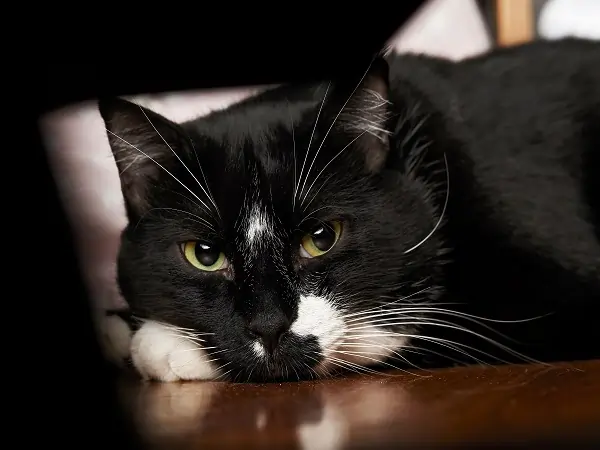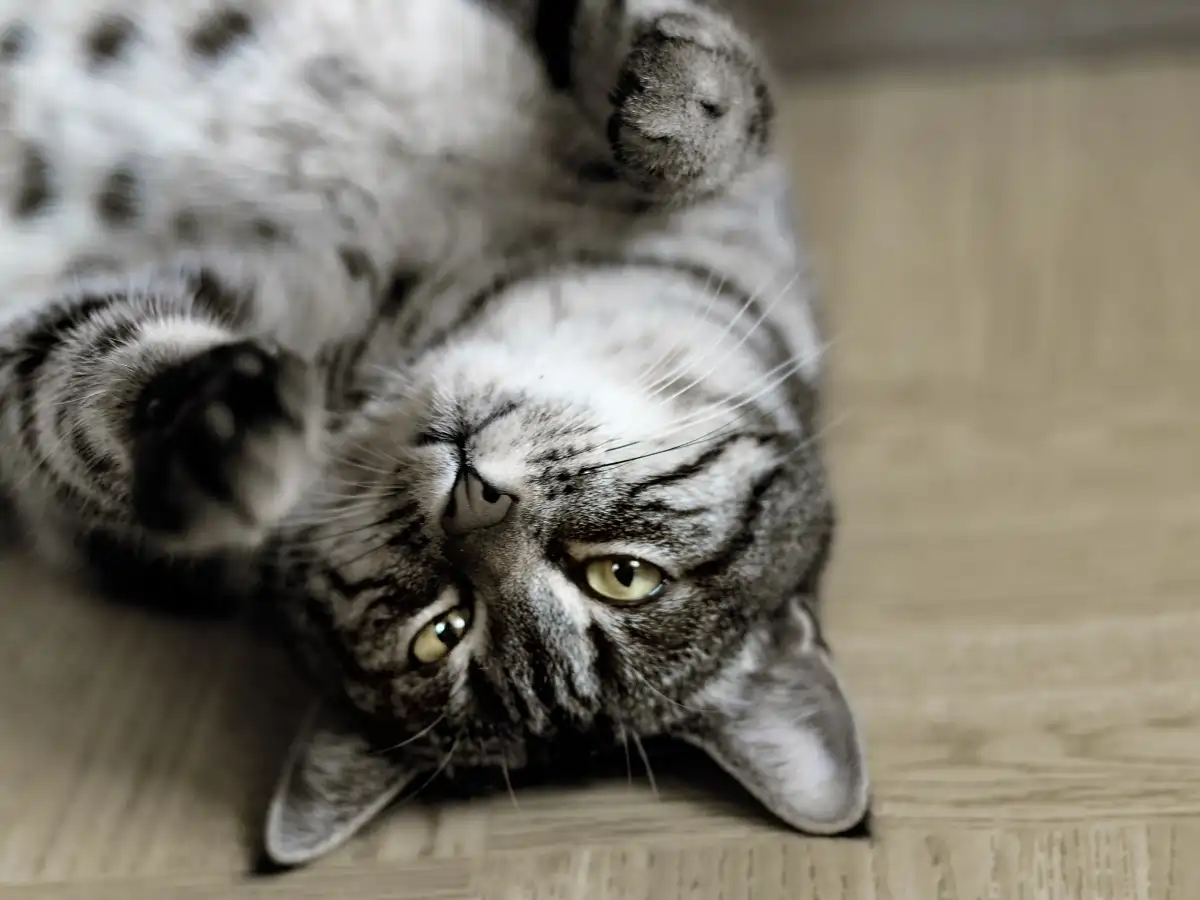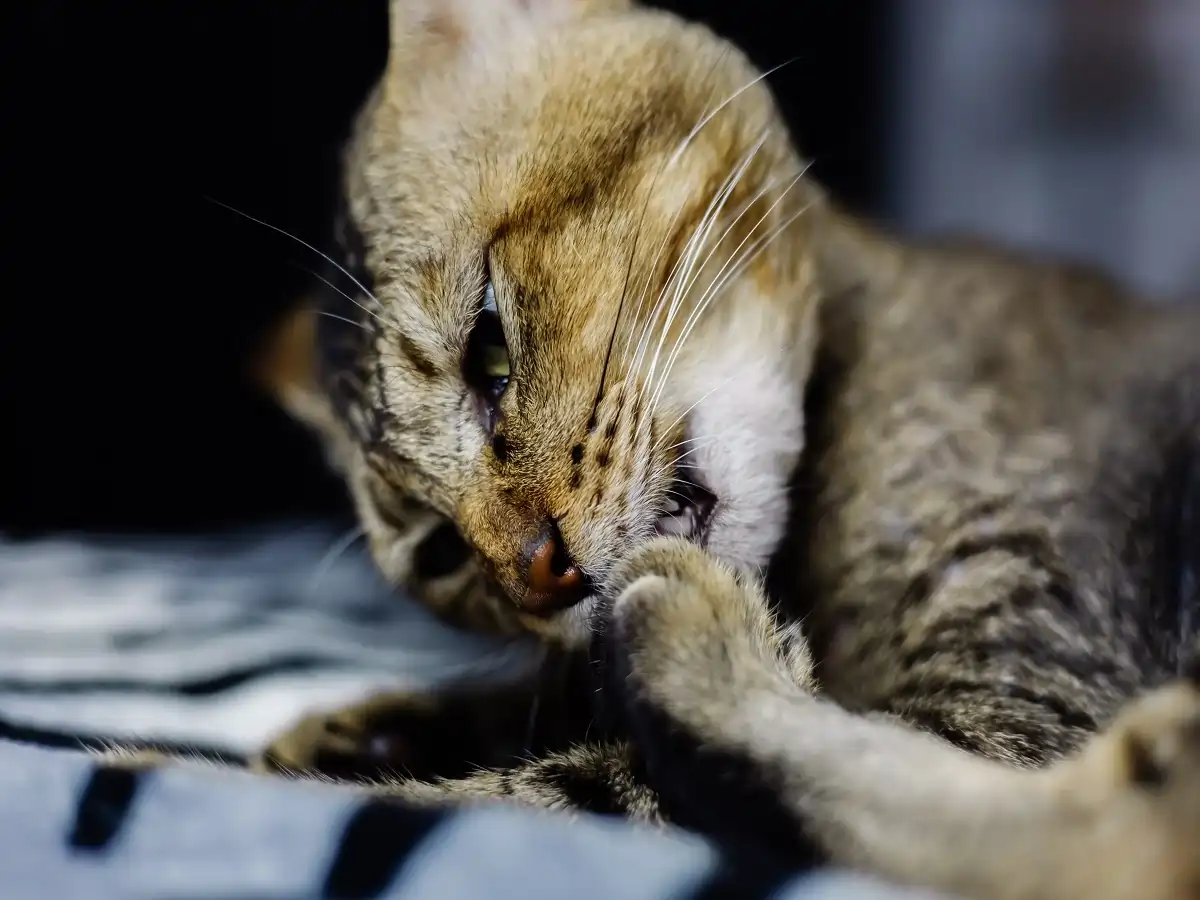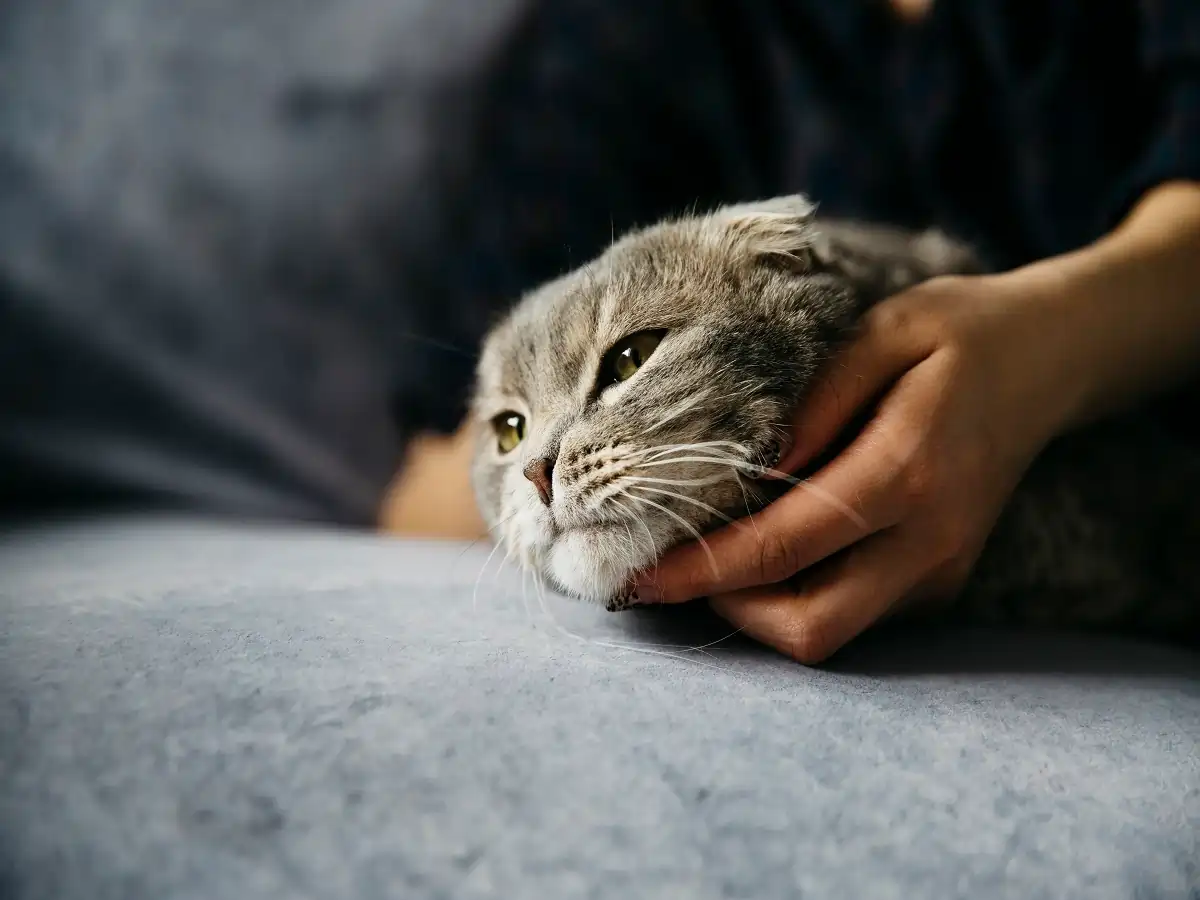Autism is a complicated thing that affects how people interact, talk, and do things over and over. People talk a lot about it, but what about animals, like our pet cats? Can they act like they have autism? This question makes us think about how cats behave and grow up. It helps us understand them better. Learning about this not only teaches us about cats’ personalities but also helps us take care of them better.
Let’s explore, can cats have autism? We will look at how cats act, and how their brains work, what studies say, and what experts think about this interesting topic. This helps us understand if they can have autism-like behaviours.
Table of Contents
ToggleCan Cats Have Autism?
Can cats have autism? It is a tough question. Autism is when people have trouble with social stuff, talking, and doing things again and again. But figuring out if cats can have autism is tricky. Animals can’t talk like humans. So, it is hard to know what they are feeling or thinking.
Some scientists and pet owners notice things in cats that look like autism in people. Like doing the same things over and over or not being great at hanging out with other cats. But saying it is definitely autism might not be right. Cats’ behaviours are influenced by lots of things, like their genes, where they live, and other health problems they might have.
To know for sure if cats can have autism, we would need to do lots of research, which we have not done yet. So, for now, it is important to be careful when talking about this topic. We should listen to what experts and science say. If a cat’s behaviour seems off, it is best to talk with a vet or someone who knows a lot about animal behaviour. They can help make sure our furry pals get the best care possible.
Can Cats Have Down Syndrome?
Cats cannot have Down syndrome because it is only for humans. But they can have other genetic issues. One example is feline cerebellar hypoplasia, which affects how they move but is not like Down syndrome. If you are worried about your cat’s health, talk to a vet for help.
What Is Autism?
Autism, also called autism spectrum disorder (ASD), is a type of brain condition. It makes social stuff, talking, and doing things again and again hard. People with autism might struggle to understand social cues, make friends, or talk. They might do the same things over and over and really like routines. Autism is different for each person, from mild to severe.
It is hard to figure out if animals like cats and dogs can have autism. Animals can’t tell us how they feel like people can. Even though some animal behaviours might look like autism, it is not easy to say for sure. Autism is something that is mainly seen in people, and the signs might not be the same in animals.
Scientists have tried to study behaviours in animals that seem similar to autism. They have looked at different animals like monkeys, mice, and even pets like dogs and cats. While these studies can give us some clues, animals’ behaviour is complex and might not match exactly what we see in people with autism. However, these studies help us understand more about how the brain works and how we can help animals with similar behaviours.
Can Cats Have Special Needs?
Yes, like humans and other animals, cats can have special needs that require additional care and attention. These needs can arise from various factors, including medical conditions, physical disabilities, behavioural issues, aging, or emotional trauma. For example, cats may require specialized care for conditions such as diabetes, arthritis, or blindness, necessitating medication administration, dietary management, or environmental modifications. Additionally, cats with physical disabilities may benefit from adaptations to their living space to facilitate their mobility and independence.
Behavioural challenges, such as anxiety or aggression, may require behaviour modification techniques or consultation with a veterinary behaviourist. Senior cats may need tailored care to address age-related changes in health and mobility. Moreover, cats that have experienced trauma or neglect may require patience, socialization, and understanding to help them feel safe and secure. By recognizing and accommodating their unique needs, cats with special needs can thrive and enjoy fulfilling lives as cherished companions.
Signs of Autism-Like Behaviours in Cats?
While cats cannot have autism like humans. But they might show behaviours that look a bit like it. These behaviours can sometimes confuse cat owners. Here are some signs in cats that might seem like autism-like behaviours.
- Difficulty with social interaction: Sometimes cats like to be alone because that is just how they are. It might be because of their genes, or because when they were little, they got used to being by themselves. Some cats get nervous or scared easily, and that is why they might prefer being alone. And, well, some cats just like doing their own thing without other cats around. It is kind of like how some people are introverts and like spending time alone. So, if your cat is not super social, it is probably just their nature.
- Difficulty with communication: Sometime cats might struggle to show how they feel with sounds or body language. They might do this because they feel stressed, bored, or have a habit of doing it. Making their environment more interesting, reducing things that stress them out, and dealing with any medical or behaviour problems can help stop these behaviours.
- Repetitive behaviours: Some cats might do the same things again and again, like pacing or grooming a lot.
- Not liking certain things: Cats might not like loud noises, bright lights, or strange textures.
- Not liking changes: Cats might get stressed out by changes in their home or routine.
- Selective attachment: Cats might really like one person or thing and ignore others.
- Unusual play behaviour: Some cats might play in unusual ways, like fixating on one toy for a long time.
These behaviours do not mean a cat has autism. They could be caused by different things like genetics, health issues, or just the cat’s personality. If you are worried about your cat’s behaviour, it is best to talk to a vet or an animal expert.
What Causes Autism-Like Behaviours in Cats?
Cats might act in ways that remind us of autism in humans, even though they can’t actually have autism like people do. Here are some reasons why:
- Genetic Factors: Like how you might get your mom’s eyes, cats can inherit certain behaviours from their parents. Things like being social or how they handle new stuff can be because of their genes.
- Early Developmental Experiences: When cats are tiny kittens, how they are treated and who they hang out with can shape how they behave later on. If they don’t meet nice people or have scary stuff happen when they are little. They might have trouble being friendly or talking with other cats.
- Environmental Stressors: What is going on around a cat can really affect them. Changes in their home or not having enough fun things to do can make them feel uneasy or act a bit strange.
- Neurological Factors: Just like people, cats’ brains can be different. Sometimes, this can make them act in ways that seem a bit unusual. Maybe they are super shy or don’t understand social stuff like other cats.
- Health Issues: Sometimes, cats act differently because they don’t feel well. Just like if you have a headache, you might not want to play, cats can act differently if they are in pain or don’t feel right.
Every cat is special and unique. They all have their own likes, dislikes, and things that make them happy or scared. So, what makes one cat act one way might not be the same for another. To understand why some cats might show behaviours like autism, we need to think about their genes, what they have been through, and what makes them unique. Talking to a vet or someone who knows a lot about animals can help figure out why a cat acts the way it does and how to make it feel better.
Final Words
In conclusion, after looking into whether cats can have autism, we found out that their behaviour is pretty complex. While cats can’t be diagnosed with autism like humans, some of their actions might look similar to autism in people. These actions could be because of things like genes, experiences when they were little, or stuff around them. It is important to be careful about saying cats have autism, though. Instead, we should focus on understanding each cat’s needs and behaviours. We need to keep learning about how cats behave and grow so we can take better care of them. Understanding cats better helps us give them the best care and appreciate how cool they are.











